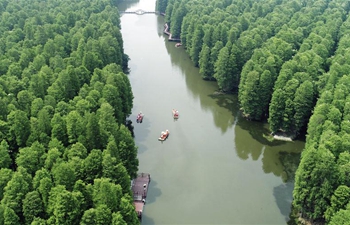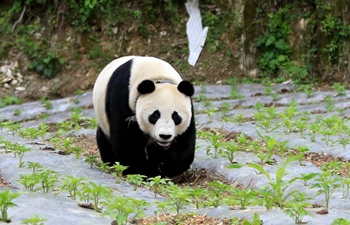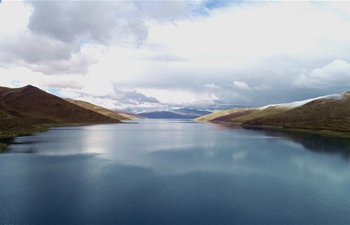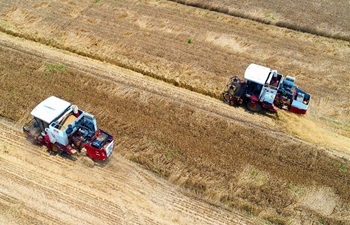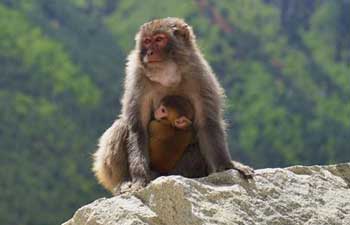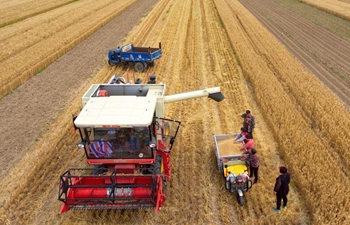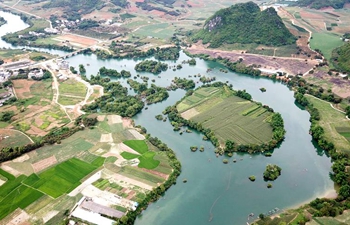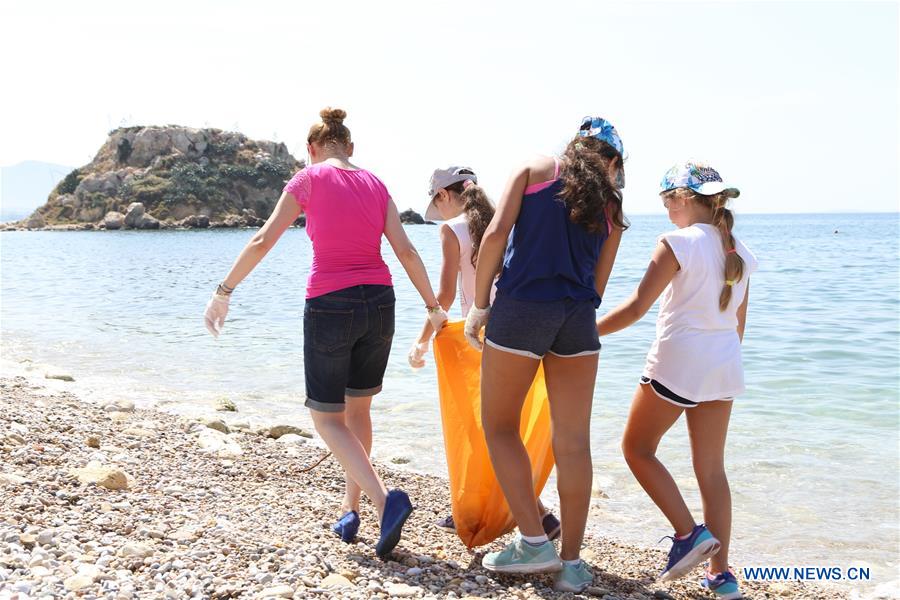
Volunteers participate in a cleaning activity to mark the World Environment Day, at Votsalakia beach, Piraeus, Greece, June 5, 2018. (Xinhua/Chris Kissadjekian)
by Natasha Pavlopoulou
ATHENS, June 5 (Xinhua) -- Votsalakia, a popular beach a kilometre away from Piraeus Port, received a clean up on Tuesday by 20 primary school students, their teachers and dozens of volunteers from the area.
The event was organized by the Hellenic Marine Environment Protection Association (HELMEPA) in the context of Sea Days 2018, which runs from June 1 to 10.
The event, which is organized by the Municipality of Piraeus in collaboration with the port city's institutions and associations, features various free events and helps to increase public awareness about issues of marine sustainability.
"The voluntary cleaning of Votsalakia beach by students-members of HELMEPA and volunteers is an excellent initiative, an example for all of us. The younger generation expresses hope for the future because they learn to respect the environment, to recycle and to live a more environmentally-conscious life," Piraeus Mayor Yiannis Moralis told Xinhua.
HELMEPA's manager of environmental data and information, Dimitrios Kazas said: "We helped the pupils to symbolically clean up the beach mainly from cigarette butts and microplastics. Today, we celebrate World Environment Day, and on June 8, World Ocean's Day also aims to raise awareness about the marine environment and the threats it faces from human activities."
The action included waste recording in special bulletins, separation of the recyclables, as well as a briefing about the problem and the need to reduce pollution using educational toys.
In May, Greece took part in the "Let's Clean-up Europe" action coordinated by HELMEPA, with the participation of more than 5,000 volunteers in 118 cleaning initiatives across the country. According to the results of a HELMEPA survey, during environmental actions in 2017, cigarette butts emerged as the number one litter item on Greek beaches (65,069). Present on the top 10 list are also plastic litter items connected to coastal leisure activities, such as straws (14,568), food containers (13,799), bottles (10,526), plastic bottle caps (9,897) and bags (6,134).
A total of 70 percent of the waste comes from land-based activities, and much of it comes from the mountains and the hinterland, ending up in the sea and at the coast by the wind, rivers, torrents, even the road network.
A plastic bottle requires 450 years to dissolve into the sea, HELMEPA experts stressed.




